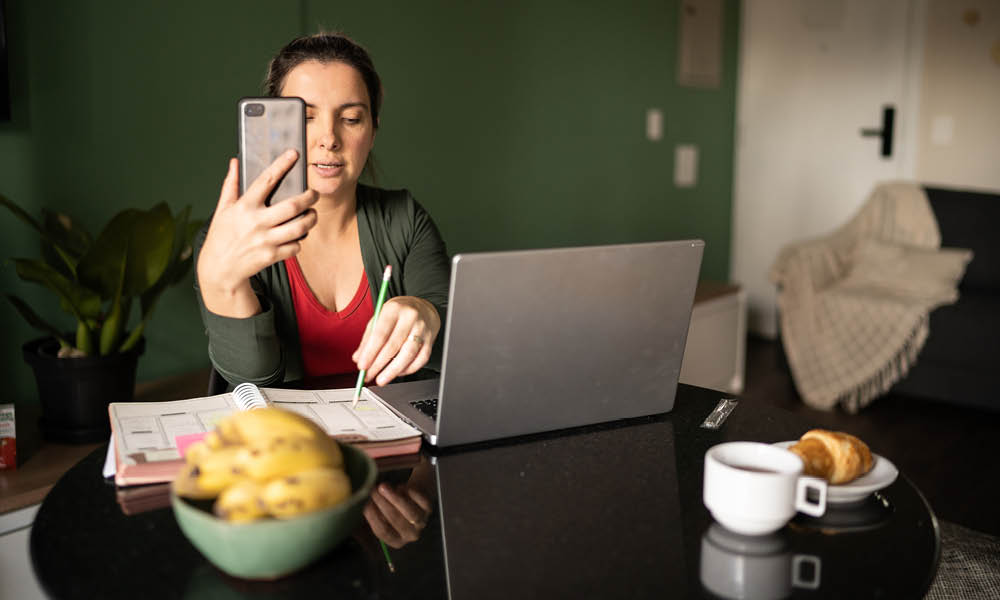The pandemic drove an exponential surge in the use of remote working platforms, as businesses strove to stay operational during lockdowns and restrictions.
Although we are slowly emerging from that cloistered world, and returning furtively to face-to-face meetings and in-person conferences, the technology unleashed is here to stay.
In many ways that is a good thing, especially in Australia, a country more challenged by the tyranny of distance than most. Meetings with far-flung staff, once confined to the crackly and occasionally echo-filled world of the conference call, now take place on high-speed video; training sessions and conferences which have previously involved travel or the purchase of a non-interactive recording can now be attended virtually, from almost any place on Earth.
The platforms that allow this provide many other functionalities, like themed backgrounds and, rather infamously, filters that can turn participants into cats. These platforms also generally allow participants to record proceedings – a more useful, but potentially less benign, application.
On the face of it being able to record can seem like a good thing. Lawyers are cautious people, and what better way to ensure that we have picked up the important parts of a training session or CPD conference?
Although the idea of having a perfect record of a conference may seem appealing, for solicitors, the question is not a simple one. A number of duties and obligations impact on the question of whether or not we can, or should, record something.
Courtesy and confidentiality
Solicitors have a duty to be honest and courteous in all dealings in the course of legal practice,1 and it is fair to say that attending CPD conferences or other professional events would be included in that.
It follows that, should a solicitor be minded to record a presentation, it should only be done with the express permission of the presenter and any other participants.
Solicitors also have a duty to maintain client confidentiality,2 so when deciding whether or not to record a presentation a solicitor must also ensure that doing so will not violate client confidentiality.
Some presenters use real-world case studies and likely depend on the professionalism of attendees to maintain confidences, and in any event no presenter would assume that an officer of the court was covertly recording the presentation, nor should they. In short, they should be able to trust us.
The law
In Queensland, Section 43 of the Invasion of Privacy Act 1971 (Qld) (the IPA) provides that it is an offence to use a listening device to overhear, record, monitor or listen to a private conversation, but crucially provides an exemption if the person using the listening device is a party to the conversation.
Whether or not attending an online CPD event would be regarded as being a party to a conversation is a question not yet resolved by the courts, but recording such a session without permission is unlikely to find favour.
The courts have consistently criticised covert recording of meetings in workplaces,3 and it would be unwise to assume they would not have similar reservations about the practice in other scenarios.
Intellectual property concerns
The material presented at conferences and CPD events might well constitute intellectual property, usually owned by the organisers or the presenters. Recording it without consent may be illegal, and would certainly be unwise; and it is entirely possible that in signing up for these events, practitioners will have agreed in the fine print not to record or disseminate the material.
In practice
CPD conferences, panel discussions and other professional events can benefit from a robust exchange of ideas and lively discussion, but these may not occur if participants are concerned that they were being covertly recorded. If a practitioner seeks to record such an event, permission must be specifically sought; that gives participants the chance to refuse and thus ensure a genuine engagement.
In short, officers of the court should as a matter of course seek permission before recording a presentation or meeting, whether or not they are required to do so; surreptitious recordings ought not to be part of the practice of any prudent practitioner – a profession founded on the principles of respect, collegiality and honesty can do no less.
Shane Budden is a Special Counsel, Ethics, with the Queensland Law Society Ethics and Practice Centre.
Footnotes
1 Australian Solicitors Conduct Rules 2012 Rule 4.1.2.
2 Ibid. Rule 9.
3 See, for example, Eleanora Jalea v Sunstate airlines (Queensland) Pty Ltd T/A Qantas Link [2012] FWA 1360; Ron Lever v Australian Nuclear Science and Technology Organisation (2009) AIRC 784; Wayne Schwenke v Silcar Pty Ltd t/as Silcar Energy Solutions [2013] FWC 4513.














Share this article